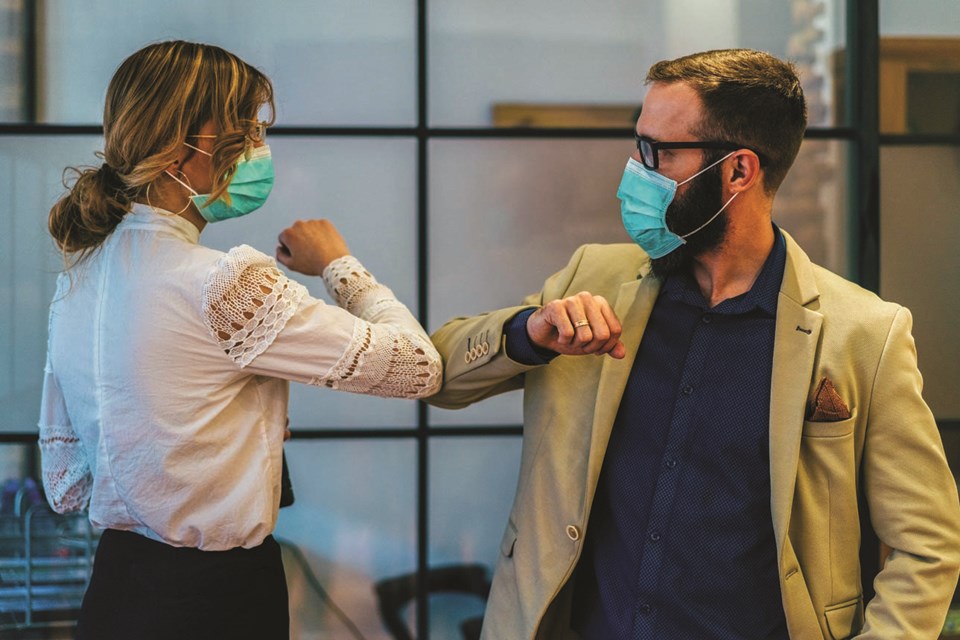VANCOUVER — Is "speaking moistly" something that needs to be taken seriously?
On April 6, Dr. Theresa Tam, Canada's chief public health officer, offered new advice for Canadians: Wear a face mask to help cut down the spread of the novel coronavirus when you are in situations where you can’t always maintain proper physical distance from others.
Tam said the aim of the new guidance is to prevent transmission by people who are unknowingly infected with the virus. But she adds medical masks must be preserved for healthcare workers.
The next day. Prime Minister Justin Trudeau gave us the phrase "speaking moistly" during his daily press conference when he said: “My understanding from what Dr. Tam explained yesterday is that if people want to wear mask that is OK. It protects others more than it protects you because it prevents you from breathing or speaking moistly on them,” Trudeau said, followed by, “Ugh, what a terrible image.”
While Dr. Tam, has underscored the importance of physical distancing to slow the spread of COVID-19, not everyone has taken the recommendation seriously. In fact, a recent polls finds that over a quarter of Canadians (26 per cent) are not following the recommendations from public-health officials to their full extent.
And while the government hasn't ordered everyone to must wear a face mask or covering, they have stated that these things may prevent one's own saliva from spreading to others. In other words, 'speaking moistly' is a real thing.
Bryan Gick, a speech scientist with UBC Language Sciences, says that people release small particles of saliva when they speak, sneeze, cough, or even just breathe. He adds that depending on how big these particles are, they may remain airborne for quite some time or land on surfaces.
"Both of these have issues when it comes to conveying infectious pathogens," explains Gick. "In the one case you’ve got particles that are breathed in, and in the other case you’ve got particles that can be picked up by touch."
While talking produces less saliva than coughing or sneezing, Gick notes that talking produces it over a longer period of time. Even in a short conversation, he says that thousands of aerosol particles are being released.
"If you step into an elevator where somebody just had a conversation with family members, it may be empty but there still may be aerosol particles that you’re breathing in," he notes.
Gick also remarks that 'speaking moistly' could apply to 'super-emitters' — people who generate more than the typical number of droplets during speech and who are potentially super-spreaders.
According to Gick, even specific sounds, languages or dialects could be the culprits.
"Aspirated sounds are sounds where you take a breath of air, generate a lot of air pressure and produce a big burst, like “pah” and “tah.” Radio hosts know about “pah” and “tah” because they produce a really loud pop in the microphone. Most dialects of French don’t have these sounds. In English you might say “please” with that burst, but in a French accent it’s a softer “p” that sounds much more like an English “b”."
With this in mind, Gick doesn't know if certain languages could be more dangerous. He notes that speech isn't associated to illness the way that coughing and sneezing are.
"What’s become clear in the current situation is that we need to have researchers coming together who really understand speech and who really understand airborne pathogens. If we’re not all working together on this, we’re not going to understand it fast enough to be able to come up with solutions."
Read more from VancouverIsAwesome.com



